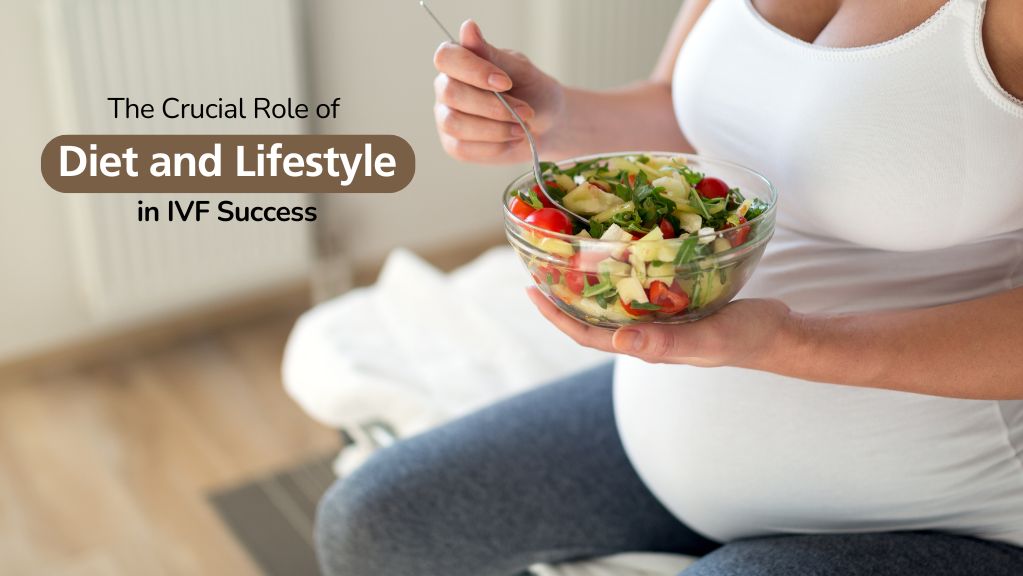In vitro fertilization (IVF) has revolutionized the field of fertility treatments, offering hope to countless couples struggling with infertility. While advancements in medical technology play a pivotal role in the success of IVF, emerging research emphasize the significance of diet and lifestyle factors in optimizing outcomes. Understanding how lifestyle choices impact fertility with Gaudium IVF, the best IVF Center in Mumbai can empower individuals undergoing IVF to take proactive steps towards enhancing their chances of success.
The Impact of Diet on IVF Success:
Nutrition plays a fundamental role in reproductive health, influencing hormonal balance, egg quality, and overall fertility. Research suggests that adhering to a balanced diet rich in fruits, vegetables, whole grains, lean proteins, and healthy fats can positively impact IVF outcomes. Antioxidants, such as vitamin C, E, and selenium, found abundantly in fruits and vegetables, may help reduce oxidative stress, which can compromise egg and sperm quality.
Conversely, diets high in processed foods, saturated fats, and sugar have been linked to decreased fertility. Excessive consumption of transfats, commonly found in fried and processed foods, may impair embryo development and implantation. Additionally, high glycemic index foods can disrupt insulin levels, potentially hindering reproductive function.
The Role of Weight and Body Composition:
Maintaining a healthy weight is crucial for fertility optimization, as both underweight and overweight conditions can adversely affect IVF outcomes. Obesity is associated with hormonal imbalances, insulin resistance, and inflammation, all of which can impair reproductive function and decrease the chances of successful IVF. Conversely, being underweight may lead to irregular menstrual cycles and ovulatory dysfunction.
Striving for a healthy body mass index (BMI) prior to undergoing IVF can improve the likelihood of conception and reduce the risk of complications during pregnancy. A comprehensive approach that combines dietary modifications, regular physical activity, and stress management techniques can facilitate weight management and enhance fertility outcomes.
The Influence of Lifestyle Factors:
In addition to diet and weight, various lifestyle factors can impact IVF success. Tobacco smoking, for instance, has been consistently linked to decreased fertility in both men and women. Cigarette smoke contains harmful chemicals that can damage reproductive organs, impair sperm quality, and disrupt hormone production in women.
Alcohol consumption is another modifiable lifestyle factor that may affect IVF outcomes. While moderate alcohol intake may not significantly impact fertility, excessive alcohol consumption can disrupt hormonal balance and impair embryo development. It is advisable for individuals undergoing IVF to limit alcohol intake or abstain altogether to optimize their chances of success.
Stress management is also paramount during the IVF journey, as stress can negatively impact reproductive hormones and menstrual cycles. Incorporating relaxation techniques such as yoga, meditation, or acupuncture can help reduce stress levels and promote emotional well-being, thereby supporting the IVF process.
Conclusion:
While IVF represents a remarkable advancement in reproductive medicine, its success is influenced by various factors, including diet and lifestyle choices. By adopting a holistic approach that prioritizes nutrition, weight management, and healthy lifestyle habits, individuals undergoing IVF can maximize their chances of achieving a successful pregnancy. Empowered with knowledge and proactive strategies, couples can embark on their fertility journey with confidence and optimism, knowing that their lifestyle choices play a crucial role in realizing their dreams of parenthood.
Source: https://www.gaudiumivfcentre.com/blog/the-crucial-role-of-diet-and-lifestyle-in-ivf-success/






Comments